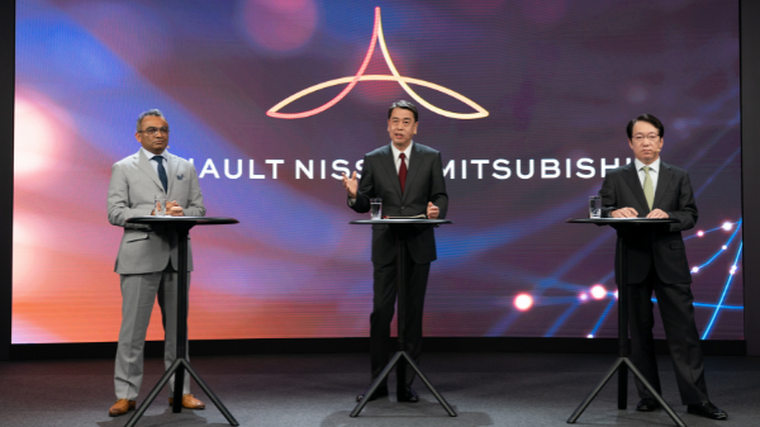Marques reveal $39b electric pact

Nissan and Renault have detailed a US$26 billion ($39.6b) electrification plan over the next five years that will deepen ties between the marques and deliver 35 new battery-powered cars by 2030.
The two-decade alliance, which also includes Mitsubishi, says it will increase the number of common platforms for electric vehicles (EVs) from five to four.
Funding for the five-year programme was announced separately by the carmakers last year and aims to help them remain competitive amid the global shift to zero and lower-emissions vehicles.
The companies add that more than 80 per cent of their models will share common platforms by 2026, an increase from the current 60 per cent.
The alliance’s plan comes as it still tries to rebuild itself after being rocked by the 2018 downfall of its former leader Carlos Ghosn amid a financial scandal.
Nissan and Renault were early leaders in the EV market with their Leaf and Zoe models but as competition has grown, rivals such as Tesla and Volkswagen have come to the fore.
During an online presentation on January 27 to announce the pact, Luca de Meo, Renault chief executive officer, said: “We are not a second division player when we come together.”
Nissan plans to replace its Micra with a model built in France alongside the Renault R5, while the platform for the Nissan Ariya EV crossover and Renault Megane E-Tech will add more than 15 models by 2030.
Mitsubishi aims to increase its European presence with two new models based on Renault vehicles.
To power the new EVs, the partners plan to secure 220 gigawatt hours (GWh) of battery production capacity by 2030, providing greater scale that would allow them to halve battery costs by 2026 and reduce them by 65 per cent by 2028, reports Reuters.
The latest road map for the alliance, which began in 1999, marks a focus on practical ways for the trio to pool their resources, even as an imbalance in the cross-shareholding tie-up remains.
Renault holds a 43 per cent stake in Nissan with voting rights, while the Japanese marque owns 15 per cent of Renault and has no voting rights.





